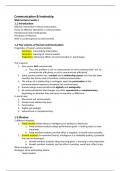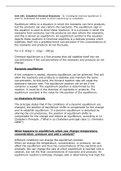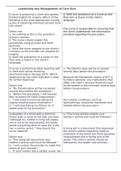College aantekeningen
Communication and leadership course knowledge clips summary
- Instelling
- Universiteit Utrecht (UU)
Dit is een samenvatting van alle hoorcolleges / knowledge clips van het vak communication & leadership op de Universiteit Utrecht. Dit vak is onderdeel van de master social, health and organisational psychology van de track social influence.
[Meer zien]













